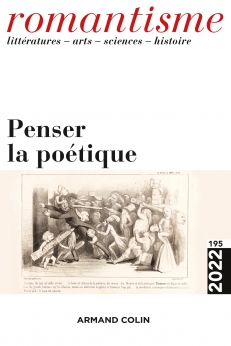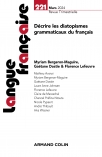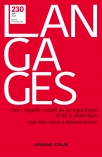
ROMANTISME N°195 (1/2022)
Pour acheter ce numéro, contactez-nous
Recevez les numéros de l'année en cours et accédez à l'intégralité des articles en ligne.
Comment, dans la société issue de la Révolution française et en proie à une instabilité axiologique fondamentale, représenter dans et par le roman les fluctuations du réel et interroger le devenir de l’individu moderne ? Tandis que dans le premier XIXe siècle le questionnement sur la crise du sens et la figurabilité de la désagrégation du réel se traduit massivement par la mélancolie, d’une part, et par l’idéal de transparence et de signification de l’esthétique « réaliste », d’autre part, la poétique qui préside à la création romanesque balzacienne constitue une originalité profonde et fondamentale : l’auteur de La Comédie humaine interroge en effet la lisibilité du monde moderne à partir de ce que nous proposons d’appeler une poétique romanesque de l’ironisation.
How can the novel, in the social world emerging from the French revolution with its constant re-evaluation of values, represent the vagaries of reality and question the destiny of the modern individual ? While in the first half of the 19th century issues relating to the crisis of meaning and the disintegration of reality are massively translated into melancholy, on the one hand, and the ideal of transparency and significance represented by the aesthetics of “realism”, on the other, the poetics that are the guiding principle of the Balzacian novel establish their deep and fundamental originality : the author of the Human Comedy questions the modern world’s legibility on the basis of what we suggest be called a poetics of novelistic ironisation.

